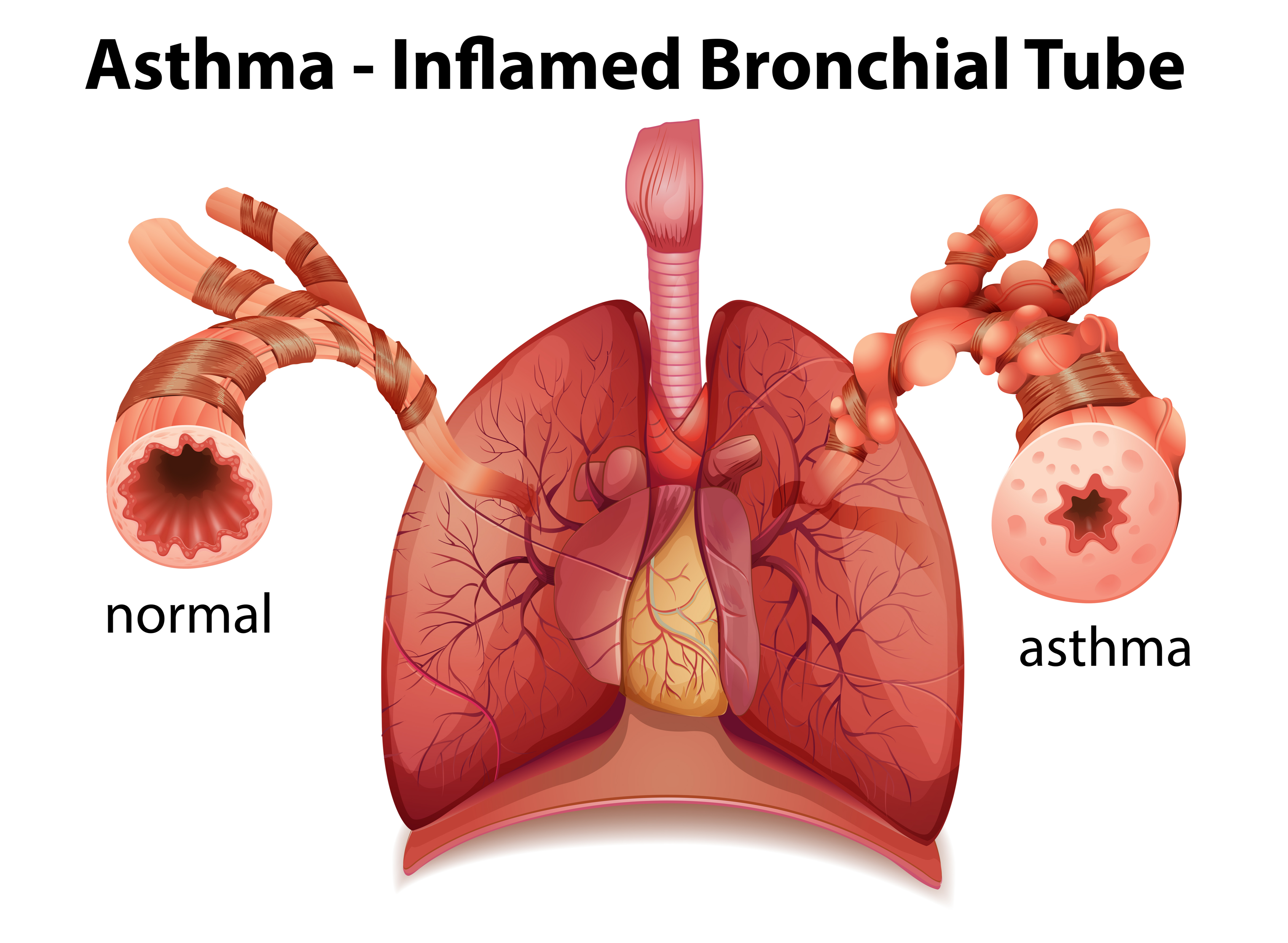Asthma & Inflammation - the importance of Omega 3
Asthma rates in New Zealand shouldn't be overlooked, with 14% of children and over 12% of adults having asthma1. Let's look into what asthma is and how natural treatment options such as increasing your omega 3 intake can play a role in asthma management.
What is asthma?
Asthma is a chronic inflammatory lung condition. In simple terms, asthma is a long-term condition where your airways narrow as a result of inflammation and swelling. This inflammation is

combined with extra mucus production which creates even more obstruction and difficulty to breathe. If left untreated, this can result in structural changes that significantly affect a persons’ way of life. There are many complexities of asthma, however in this article I'll be focusing on a natural strategy to reduce the inflammatory aspect.
What’s interesting is that asthma is largely a disease of developed countries, with significantly higher rates of asthma than those of developing countries. One of the main contributors is the westernised diet, consisting of more processed and convenience style foods resulting in increased intake of refined sugars, fats and additives.
Asthma & Inflammation
Given that asthma is characterised by inflammation in the airways, it makes complete sense to prevent and reduce this inflammation as much as we can. Pharmaceutically we have preventer medications containing corticosteroids to do this such as Flixotide, Seretide, Qvar & Symbicort.
While it is important and necessary to use our preventer inhalers regularly, it also makes sense to reduce inflammation through our diet.
There are a few ways to bring down inflammation through nutrition, but increasing your intake of Omega 3 fatty acids is a great place to start.
Essential Fatty Acids
Essential fatty acid deficiency has been shown to be associated with an increased incidence of asthma and allergic responses.
There are 2 types of fatty acids. Omega 3’s, and Omega 6’s. The three Omega 3’s are EPA, DHA & ALA. The two Omega 3 fatty acids that are of most interest to us with regard to asthma, are EPA and DHA. These two fatty acids have had their anti-inflammatory actions studied for decades.
To get an idea of our essential fatty acid consumption, we used to think about the ratio of omega 3 to omega 6 foods in our diet. We now have a better measurement to use which is called the Omega 3 index.
Omega 3 Index
The Omega 3 index measures the levels of EPA and DHA in the red blood cell membranes. This is expressed as a percentage. Omega 3 index’s vary between person to person between 2 and 12 % but the sweet spot for reducing inflammation in the airways is 8% or above.
A recent, promising, 2020 Australian study2 showed that having a higher Omega-3 Index has a profound impact on asthma control and medication use. The study highlighted that a higher omega-3 index was found in subjects with controlled or partially controlled asthma compared to those with uncontrolled asthma. It showed that those with an omega-3 index of 8% or higher, needed a lower maintenance dose of preventer inhaler.
"those with an omega-3 index of 8% or higher, needed a lower maintenance dose of preventer inhaler"
Nutritional Strategies to Increase Omega 3 Levels
So what can you do to increase your Omega 3 levels?
Fish and seafood, are the most concentrated sources. The Japanese eat large amounts of fish in their diet, have Omega-3 levels of 9-10% and you guessed it... have low rates of asthma (and many other diseases).
It is best to choose small oily fish at the bottom of the food chain if possible, as the smaller fish are lower in mercury.
Research has shown that people with the magic Omega 3 index of 8% eat 4-5 servings of oily fish per week or do a combination of taking a daily omega 3 supplement with 2-3 servings of oily fish per week. Of course, the more fish you eat, the less need for a supplement. The Japanese would be great role models here!
Increasing your dietary intake doesn’t have to be a challenge, and it doesn’t have to be expensive. It can be as simple as a couple of lunch meals including canned fish, and a couple of dinners with fish included. Consuming 1-2 serves of fish per week

alone can boost you up to having an omega 3 index of 5%! Don’t make it hard, fit it into your families’ meals whenever you can.
The highest and my favorite sources of omega 3’s are:
- Sardines – made into a delicious nutritious sardine butter [link to recipe here]
- Mackerel (canned or fresh) – made into a fish pie (kids love this!)
- Salmon of course, in any shape or form.
Plant based sources of Omega 3’s
You don’t like fish? Your vegan? You're allergic to fish and seafood?
Seaweed is the only plant based source of EPA and DHA, although in low amounts compared with fish and seafood. It is still highly nutritious though and makes a great inclusion to any diet.
Plant based sources such as chia seeds, walnuts, hemp seeds and flax seeds contain the Omega 3 ALA which is the third Omega 3 I mentioned above. ALA is converted in the body to EPA and DHA but the conversion rate is poor. This means that those following a vegetarian or vegan diet may be at risk of Omega 3 deficiency as these diets don’t provide direct sources of EPA or DHA. This is further proven by the fact that consuming ALA has shown no increase on the Omega 3 index. As an aside, these plant based sources containing ALA have many other health benefits so are still an essential part of a balanced diet.
"...following a vegetarian or vegan diet may put you at risk of Omega 3 deficiency"
In this situation taking a fish oil supplement would be a good idea. If Vegan, an algal oil supplement is a great option as algae contains both EPA and DHA.
On the topic of supplementing, I want to point out that purity levels vary greatly between different brands so always seek professional advice when choosing a high quality oil.
Contact me to book an appointment or send a message to find out how I can help you.
Zoe Hunt
Zoe is a naturopath, pharmacist and medical herbalist from Auckland, New Zealand.

1.Ministry of Health. 2017. Annual Data Explorer 2018/19: New Zealand Health Survey. Wellington: Ministry of Health. URL: https://minhealthnz.shinyapps.io/nz-health-survey-2018-19-annual-data-explorer.
2. Stoodley, I., Garg, M., Scott, H., Macdonald-Wicks, L., Berthon, B., & Wood, L. (2020). Higher omega-3 index is associated with better asthma control and lower medication dose: A cross-sectional study. Nutrients, 12(1), 74.
